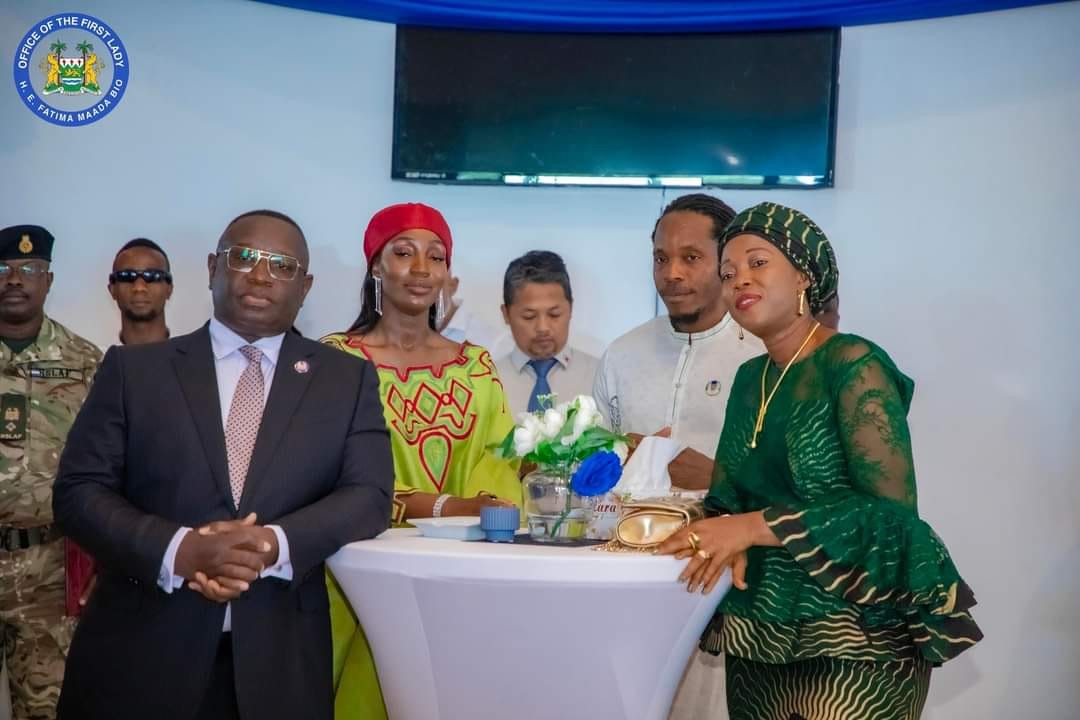His Excellency President Dr. Julius Maada Bio and First Lady Dr. Fatima Maada Bio have hosted a special event in celebration of Sierra Leone’s election into the United Nations Security Council.
The event was graced by development partners including the Diplomatic Corps, Ministers of Government, and Heads of Ministries, Departments and Agencies.
His Excellency President Dr. Julius Maada Bio recalled that Sierra Leone got elected on Tuesday June 6th 2023, by an overwhelming majority, to serve a two-year period as a Non-Permanent Member of the United Nations Security Council.
Sierra Leone, he said, will serve meaningfully at the Security Council in line with the country’s seven priorities on which it was elected.
Her Excellency the First Lady Dr. Fatima Maada Bio expressed appreciation to Sierra Leoneans for choosing peace over war in line with the agenda of His Excellency the President.
She reminded Sierra Leoneans that President Bio will continue to fight for peace and development of Sierra Leone as he did on the battlefield and now in the presidency.
She assured all that Sierra Leone will continue to remain peaceful and united.
UN General Assembly on Tuesday in New York elected Sierra Leone as non-permanent members of its Security Council, joining Ecuador, Japan, Malta, Mozambique and Switzerland as non-permanent members of the Council.
Sierra Leone and other new members will take up seats currently occupied by Albania, Brazil, Gabon, Ghana and the United Arab Emirates when their two-year terms end on December 31, 2023.
The country will join the premier body for maintaining international peace and security starting in January 2024.
The Security Council is composed of 15 countries, five of which – China, France, Russia, the United Kingdom and the United States – are permanent members, granting them the right to veto any resolution or decision.
The 10 non-permanent members are elected by the General Assembly which comprises all 193 UN member-states and is in line with geographical distribution by region.
Voting is conducted by secret ballot and candidates must receive a two-thirds majority, or 128 votes, even if they did not contest to be members.
Overall, 192 countries voted to fill three Council seats allocated to the African and Asia-Pacific Groups, and one each for Eastern Europe, Latin America and the Caribbean.

